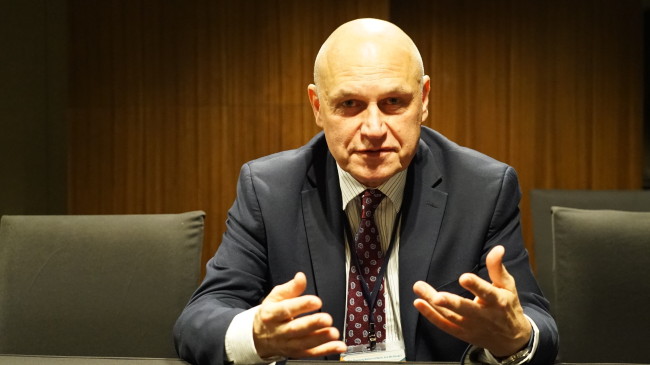The fear of losing jobs due to automation will not become reality, as innovation will continue to create jobs, according to World Bank Group Senior Director Michal Rutkowski. Still, nations should consider how to better protect workers in the changing work environment driven by technology advances, he added.
The notion that automation makes traditional jobs obsolete has always been a source of frustration for blue-collar workers. With the advancement of artificial intelligence and robotics, the fear now reaches even white-collar workers. Around 800 million global workers are expected to lose their jobs by 2030 due to robotic automation, according to a report last year from the Mckinsey Global Institute.
Despite the circumstances, the World Bank senior director pinned his hopes on innovation.
“Automation reduces jobs in all sectors but innovation has always created jobs in new sectors that did not exist before automation, resulting in higher productivity and less physical efforts. History tells us,” he said.
Rutkowski, who joined the World Bank in 1990, now serves as a senior director at the international organization’s social protection and jobs division. He oversees the international organization’s work in developing systems that protect the poor and vulnerable from crisis and shocks, and supporting private sector-led growth.
For white-collar workers, “We see the fears but we don’t (actually) see white-collar groups losing their jobs. It’s rather the opposite. Educated people reinvent themselves and innovate other things successfully. Fear and reality are different,” the senior director said.
He cited journalists as an example: Artificial intelligence is shaking up present-day journalism. Automated news are distributed without human supervision. Social media has quickly become a powerful form of publishing.
“(Still) I believe in journalism. To me, robots do not have the personal touch or customization of argument to readers. Social media cannot be a substitute to journalism as it does not have quality control,” he said.
“I rather believe journalists will reinvent themselves with some passion as social media changes the nature of journalism,” he said.
 |
Michal Rutkowski, a senior director at World Bank Group’s social protection and jobs division (Yoon Yeun-jung /The Korea Herald) |
Although the fear of job reduction may not become reality, nations should pay attention to protecting workers in the fast-changing work environment driven by technology advances.
“Because new digital platforms provide different labor arrangements much less regular and much less linked to social protection, we need to start to think about how to provide social protection for those people,” Rutkowski said, referring to employment contracts, well-targeted minimum income and social insurance mechanism.
In Korea, the number of nonregular workers -- temporary, part-time and freelance -- stood at 6.6 million, accounting for 33 percent of the nation’s total employment, according to government data released in August. Nonregular workers earned nearly half as much as regular workers on average, with much less job-related insurance.
“(So far) Korea doesn’t have the best interest in trying to protect all ways of providing social protections like you see in some European countries. So, Korea is a latecomer in social protection and its system of employment benefits are relatively new.”
However, this can provide opportunities, as Korea can be more open to experimenting new systems and leapfrog other nations by avoiding mistakes they made, he added.
In the era of growing automation and technology advances, human capital investment is very important to reduce inequality in the labor market, he said.
“Investment in human capital is the best way of benefiting from automation and of getting jobs which are well paid because winners will be those who have higher skills in the digital era,” he said.
He also described Korea’s labor market as somewhat tricky.
Korea ranked second in the Human Capital Index released by the World Bank in October. The index quantifies the contributions of health and education to the productivity of the next generation of workers.
Despite Korea having a high score in the index, the nation still has a high youth unemployment rate of 9.5 percent due mainly to a large gap between small and large companies in the areas of compensation and working conditions.
“In Korea, you have a segmented labor market. Labor conditions in small and midsized companies are different from large companies such as Samsung or LG. This type of segmentation often hampers labor mobility and creates less competition in the labor market,” he said.
He suggested the government should seriously think about wage subsidization for small firms and the country’s openness to the inflow and outflow of workers, so Korean workers can better land jobs in the global market.
By Shin Ji-hye and Yoon Yeun-jung
(
shinjh@heraldcorp.com) (kairos07@heraldcorp.com)








